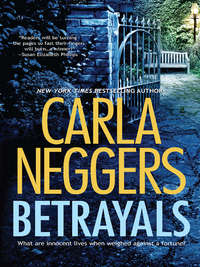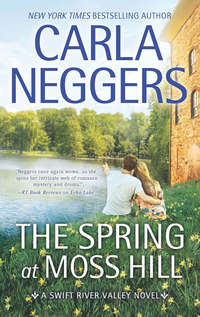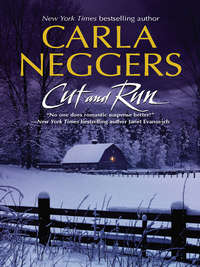
Полная версия
The Rapids
“You okay?” he asked.
“Yeah. It brings it all back, that’s all. About time we got the bastard.”
“Any word on extradition?”
“Legal eagles are already on it. The Dutch say they have enough to charge him with Char Brooker’s murder. If we can’t do better than that—” She shrugged, then gave a dry smile. “It’s not as if he succeeded in killing any of us over here.”
“Not for lack of trying.”
Juliet’s eyes seemed to flatten. “Yeah, well. The two goons he sent over here to find out what was going on are dead.”
And she and a former Special Forces officer—dead army captain Charlene Brooker’s husband—had found the bodies. A lunatic out of the Dunnemore past had believed he could use his knowledge of their relationship with President Poe to extract a pardon for Nick Janssen and earn millions for his efforts.
The story, with all its complexities and intricacies, had been fodder for the media for weeks.
“News of the arrest public yet?” Rob asked, keeping his own emotions in check.
Juliet shook her head. “You and I are getting a heads-up before reporters get the bit in their teeth and start calling.”
“For what? To ask us how we feel now that Nick Janssen’s in custody?”
“Pretty much.”
“I’m not talking to any reporters.”
“Me, neither.”
The shooting range was curiously quiet. Rob still could smell the smoke from his practice. He shoved a full magazine into his Glock, aware of Juliet watching him. “Want to shoot a few rounds?” he asked her.
“I’m a better shot than you.”
“Always the ambitious one.”
She smiled, not taking offense where she would have six months ago. “Just stating the facts, Dunnemore. Let me get some ear protection and goggles. It’s too goddamn hot to wear a vest—”
“Wear a vest, Juliet.”
She waved a hand. “Yeah, I guess I’d better, given my luck these days.”
“I suppose we should be relieved now that Janssen’s in custody.”
“I suppose. So why do I feel like another damn shoe’s about to drop? I’m not that paranoid.”
Rob had no answer.
Whether it was instinct or post-trauma stress at work he just knew he shared her sense of dread.
By the time Maggie dragged herself back up to her small apartment it was after midnight. Without hesitation, Dutch police had followed up on her anonymous tip and arrested Nick Janssen without incident. They had no idea who her “friend” was. Neither did she. She was hungry again and heated up leftover Indonesian fried rice, which she ate standing up, pacing, too wired and uneasy yet to settle down.
Her gaze landed on a picture of her father on a sailboat in south Florida. Smiling. She remembered how his eyes would crinkle when he smiled. He’d worked as a consultant for small businesses, mostly in eastern Europe and Russia—supposedly. Maggie had had her doubts, more so since his death. Little things didn’t add up. She suspected he’d played some kind of role in the multifaceted world of intelligence—one that he couldn’t talk about even to his DS-agent daughter. As the sharp edges of her grief had worn down, her questions had become more focused, but answers weren’t any easier to come by. She hated the idea that she might have to learn to live with her questions.
But her father had always been a fairly remote figure to her. Even when she was growing up, he was never around. Her mother finally couldn’t take his long absences anymore, and they’d divorced when Maggie was in high school. He hadn’t changed his ways. He couldn’t. She understood that part. She had that same sense of wanderlust.
“Well, Pop,” she said, dipping her wooden spoon into her pan of spicy vegetables and rice, “we got the bad guy today.”
She didn’t know if he’d ever really approved of her career in diplomatic security. He’d seemed okay with her political science degree in college, then her first job at the State Department. She’d hoped her decision to become a DS officer and the prospect of a foreign service career might have intrigued him, but he’d remained outside her life, not disinterested but not a part of it.
The DS special agent in charge of her field office had given her the news of her father’s death himself.
Philip Spencer had simply been in the wrong place at the wrong time.
Except Maggie hadn’t believed it. Still didn’t. Czech authorities, U.S. authorities—she wasn’t getting the whole story. She’d pushed and bucked and bitten off heads, and everywhere, from everyone, she got the same line.
Shot by bank robbers who then got away.
Bullshit.
There were no witnesses. Newspapers, even in Prague, barely covered the story. And the reaction she got from investigators—American and Czech—amounted to stonewalling. But she’d finally backed off. What was the point in sticking her neck out for a man she’d seen maybe a half-dozen times in the five years before his death?
Maggie dumped out the rest of her fried rice and ran cold water into the pan, leaving it until morning.
No one—not the Dutch authorities, not anyone at the American embassy—was celebrating Nick Janssen’s arrest. As pleased as they were with having him in custody, they all knew his tentacles were far-reaching. There was a lot of work yet to be done.
The media were all over the story. The embassy’s public affairs officers as well as the FBI and USMS people back in Washington were fielding questions. Janssen’s attorneys had descended, screaming and hollering. News of Maggie’s anonymous tip was out.
On her way to bed, she noticed that her solitary plant, an orchid she’d bought in deference to the collective Dutch green thumb, looked dead. It was supposed to be a hardy variety that she’d have a difficult time killing, but she’d killed it in less than three weeks.
She took it to the sink, doused it with water and left it next to her soaking leftovers pan. Maybe it’d revive by morning.
She rolled her eyes. Who was she kidding? The thing was dead. To hope otherwise wasn’t optimism—it was refusing to face reality.
And if nothing else, Maggie thought, she was a woman determined to face reality.
Libby Smith left her window open in her room at her small hotel around the corner from where Dutch police had picked up Nick Janssen. It was brazen of her. A risk. But there was no reason for authorities to investigate hotel guests. Even if they did, they’d never suspect her of being anything but what she was: an American antiques dealer, a woman looking for off-the-beaten-track bargains.
What if they had him under surveillance and saw you on the bench with him?
If they caught up with her and asked about it, she’d say she’d stopped to rest her feet and they’d chatted for a few minutes about the sights.
She couldn’t seem to get cool.
She lay naked atop the cotton duvet and noticed the sheen of her sweat in the light from the street. She could hear the traffic, the sound of music playing somewhere not too far off, the voices of people under her window, out enjoying the warm summer night.
The hundred-thousand deposit had been wired into her account. Janssen must have prearranged the transfer.
Libby had never made such money.
And it was just the beginning.
She’d memorized Janssen’s list of targets and burned it, flushing the ashes down her toilet.
Knowing his enemies—and eliminating them—would help her to understand his network and, in time, replace him.
His arrest was inevitable, just a bit earlier than she’d hoped for. Some Dutch Goody Two-shoes must have recognized him and called the police.
The balding man—who was he? Closing her eyes, Libby breathed deeply and tried not to feel as if she were suffocating, told herself the balding man didn’t matter. Only her plan did, her next target. The thrill of her work had satisfied her in the beginning. Now she wanted more.
Money.
Power.
She smiled to herself, relaxing, feeling in control at last.
Three
Nate Winter came home to find secret service agents crawling all over his house, a reminder of just how much his life had changed in the past four months.
His fiancée, Sarah Dunnemore, was on the back porch having peach cobbler with President John Wesley Poe, who regarded her as the daughter he’d never had. Being together brought out their Southern accents.
Nate had a feeling he knew why Poe was there.
Nick Janssen.
The rich, murdering bastard was finally in custody.
It was hot even on the shaded porch, but the two Tennesseans didn’t seem to mind. While looking for a home of their own in northern Virginia, Nate and Sarah were living in a corner of an 1850s historic house she was researching and getting ready to open to the public. Supposedly it was haunted by both Abraham Lincoln and Robert E. Lee. Poe liked to joke that he wished he could ask both men for advice. But Sarah, a historical archaeologist, was serious about her ghosts.
Before they’d met, Nate had been a senior deputy U.S. Marshal dedicated to catching fugitives and not much else.
He was still a marshal, he was still dedicated to his work—but now he could come home to Sarah, ghosts, peach cobbler and the occasional presidential visit.
“Mr. President,” Nate said, “it’s good to see you.”
Poe, already on his feet, put out his hand, and the two men shook. “It’s good to see you, too, Nate. Sarah’s ruining my diet with her peach cobbler.”
Nate had helped her pick the peaches from one of the trees in the old house’s sprawling yard, knowing she expected to make jam one evening. The cobbler meant she was upset, because otherwise she’d still be up to her elbows in the hundred-year-old dump she’d found out back and was in the process of excavating. When she was upset, she dug out family recipes, usually ones involving a lot of butter.
Her gray eyes connected with Nate’s for a split second, enough to tell him that Poe’s visit hadn’t been her idea. She had on cropped jeans and a tank top, barefoot even for peach cobbler with the president.
As welcome as it was, Janssen’s arrest had brought back the trauma of her ordeal last spring. Her twin brother badly injured in a sniper-style attack in Central Park, a killer on the loose in Night’s Landing, the Dunnemore family’s Tennessee home, their refuge. John Wesley Poe happened to have grown up next door.
Sarah was fair-haired and beautiful, and Nate—tall, lean, impatient—hated for those dark days to prey on her again. But he’d learned that Sarah Dunnemore wasn’t an ivory tower intellectual who wanted to remain aloof from life. She dove in, sometimes without looking.
“I stopped by to see how Sarah had taken the news of the Janssen arrest,” Poe said. “And Rob. I wondered how he was doing.”
“I haven’t talked to him yet,” Sarah said. “I called my parents a little while ago—they’re fine.”
“I tried to reach Rob on his cell phone earlier,” Nate said. “He didn’t answer. I left a message.”
“How is he recuperating from his injuries?” Poe asked.
Sarah dabbed at the ice cream melting onto her cobbler. “He’s doing well, but he’s frustrated because his recovery took longer than he expected. At least he’s back to his triathlon training.”
Swimming, running, biking. From all accounts, Rob was as fit now as he’d been before the shooting. But he’d endured a weeks-long media barrage. Now the whole world knew that he’d graduated from Georgetown and spoke seven languages, that he and his twin sister were like the son and daughter President Poe had never had. Rob often came off in media reports as a silver-spoon, Southern frat boy, but nothing about him was that simple.
“Is he back on the street?” Poe asked.
Nate shook his head. “Not yet.”
The president sighed heavily. “I worry about him.”
Which, Nate knew, Rob would hate. Sarah knew it, too, but she nodded with understanding. “It’s hard not to worry.”
“Janssen’s arrest will fire up the media again. I hate to see him go through that. They’ll rehash everything that happened in May.” Poe winced. “They’ll be calling you, too, Sarah. And your parents.”
“The marshals have sent someone to Night’s Landing in case it gets crazy. If any reporters show up here, I can handle them.” She smiled and licked her spoon. “I’ll have Bobby Lee or Abe talk to them.”
Nate could see Poe forcing himself to relax. “I never know when you’re serious—”
“Every resident of this house since 1875 swears the two of them are haunting the place. I take that seriously.” She rose, calmer now herself, and grabbed her bowl. “Are you going to eat your cobbler, Wes? Because if not, I’ll take it into the house before the flies get to it. There’s no wasting fresh peach cobbler around here.”
That elicited a real smile. “Can I take it with me?”
She beamed. A Ph.D. with academic credits up and down both arms, and she loved getting compliments for her cooking. “I’ll go wrap it up.”
When he heard the screen door shut, Wes breathed out, any hint of a smile gone. “Nate—I hope you’ll tell Rob he can call me anytime. I’ll make sure he’s put through right away.”
“He knows that, Mr. President.”
The older man nodded. “I’d like to think so. I’d like to think that now that our families’ relationship is common knowledge—” He seemed to fight for the right words. “That it won’t ruin his life.”
Nate had no idea what to say.
A secret service agent stood on the bottom step of the porch.
Time for Poe to leave.
He glanced at the screen door. “You and Sarah are good for each other. After you’re married—” He shook his head. “Well, never mind.”
Nate thought he understood what Poe was getting at. “We’ll want you to be a part of our lives, Mr. President. Both of us.”
He sighed. “Thank you.”
“Rob—”
“Rob’s a different story. He always has been.”
After Poe left with his entourage of secret service and staffers—and his peach cobbler—Nate found Sarah in the kitchen, flipping through her grandmother’s recipes. Given the array of ingredients on the table, she was looking for something that involved both cream of mushroom soup and mayonnaise. He slipped his arms around her. “I don’t think my arteries can take whatever it is you’re about to whip up.”
She shoved the cans aside. “I’m missing an ingredient, anyway.”
“Dare I ask what?”
“Water chestnuts.”
He let his hands move up her midriff toward her breasts. “Do you think Abe and Bobby Lee would object if we made love this early in the evening?”
“If I think about them watching us—”
“I don’t know, it could be fun. A foursome—”
She elbowed him in the gut, registering her disapproval, and he laughed, sweeping her up off her feet, getting her away from her cans and her kitchen. He figured he could ease her stress in other ways.
Rob rolled out of bed at six in his first-floor Brooklyn apartment, pulled on shorts and a T-shirt and headed out for his morning paper. He’d ignored all messages from reporters on his voice mail when he got home last night.
A woman in biking shorts was on his doorstep. “Deputy Dunnemore? My name’s Patty. I’d like to talk to you about the arrest of Nicholas Janssen yesterday in the Netherlands.”
No last name, no credentials. A freelancer. She looked young enough to be a journalism student. She was sweating and panting, indicating she’d pedaled a ways to get to him, which at least meant she didn’t live nearby.
Rob picked up his paper and noticed Janssen’s arrest had made the front page. No surprise.
Patty frowned when he didn’t respond. “Have you and President Poe talked about the arrest?”
Her eyes fell to where his scar was under his shirt. The whole damned world knew the details of his injury. There’d been diagrams of the path of the bullet on TV. Doctors had discussed his prognosis, his recovery, how people could live normal lives without a spleen.
“It’s a nice morning for a bike ride,” he said. “See you, Patty.”
He didn’t like shutting the door in her face, but his other options—for example, talking to her—were even less appealing. When he got back up to his apartment, he looked out his living room door and caught her giving him the finger from her bike.
A pro.
No way would he get a bike ride in himself. Or a run. Or even a swim at the Y. There’d be more reporters to deal with. He’d been shot and his family nearly destroyed because of their connection to the president. For months the media had hounded him.
Now Janssen was in Dutch custody.
Due to an anonymous tip to a diplomatic security agent three weeks on the job.
Something about it didn’t sit right with Rob. He took a shower, got dressed and headed for work, contemplating the unlikelihood of what had gone down across the Atlantic.
He managed to sneak past a throng of reporters outside the federal building where the Southeastern District Office of the U.S. Marshals Service was located. When he got to his desk, a stack of messages, all from reporters, was waiting for him.
Reporters and a day of desk work. He swore to himself and dumped all the messages in the trash.
Mike Rivera stood in his office doorway and jerked a thumb at Rob to join him. Rob doubted it was because the chief deputy wanted to put him back on the street. A heavyset man in his early fifties with bulldog features that his wife seemed to adore, Rivera was well respected but not a soft touch. He wouldn’t like having reporters crawling all over his office and harassing one of his deputies.
“Talk to me,” he said. “Who’ve you heard from?”
Rob sat in a spongy plastic chair. “A lot of reporters. I haven’t talked to any of them. There’s not much to say.”
“We can issue a statement. It probably won’t do much good while the feeding frenzy’s on, but we can try. Do you want to be available for interviews, issue a statement yourself or anything?”
“No.”
“Didn’t think so.”
“I want to do my damn job.”
Rivera’s eyes flashed. “Yeah, well, you’re going to need to lie low for a couple of days until the dust settles on this Janssen arrest.”
“I’ve been laying low since May.”
“You’ve been recovering from a goddamn bullet wound that nearly killed you—”
“It didn’t kill me.” Rob kept his voice calm. “I’m fit for duty. I don’t want anyone coddling me.”
“Who the hell’s coddling you? You don’t want to move too fast, get in over your head—”
“What, with a computer?”
“With another asshole with a gun.”
Rob didn’t respond. He hadn’t had a chance in May. He’d dragged Nate down to Central Park to see the tulips—they’d never live that one down—and gotten shot. No warning, no way to fight back. They’d walked into the park and come out on stretchers.
Rivera sat forward, his chair squeaking loudly. “Why do you look so thin?” he asked, making it sound like an accusation.
“I’m back into my triathlon training. I can pass any test you want to throw at me—”
“Yeah, okay. Don’t drop and do push-ups here in my office. You nailed your fitness for duty assessment. I know that. It’s your head I worry about.”
“I’ve done everything I’ve been asked to do, all the desensitizing and reprogramming or whatever it’s called. Time for you all to stop walking on eggshells around me.”
Rivera grunted. “Today isn’t a good day to tell me you’re just a regular deputy trying to do his job.”
His chair squeaked again when he leaned back, bugging the hell out of Rob. Not a good sign, probably, that a noisy chair irritated him. “I want to get out of here, at least for a few days. Let the dust settle.”
“Will you go down to Tennessee?”
“The Hague.”
Rivera stood and turned to his grime-encrusted window. “Christ, Dunnemore. You don’t make my life easy, do you?”
Rob smiled. “Not my job, Chief. Less chance of anyone getting misquoted or harassed if I’m out of the country.”
“So go to Ireland.”
“Nick Janssen’s not in custody in Ireland. The DS agent who got tipped off about where to find him isn’t in Ireland.”
“You’re serious, aren’t you?”
Still in his plastic chair, Rob shrugged. “Sure, why not? I can check with our people in the Netherlands, see where things stand now that the Dutch have Janssen. A Dutch judge is considering our request to interview him. We don’t want anything slipping through the cracks.”
Rivera shifted from the window and held up a hand. “I get your point. What says a Dunnemore showing up in Holland won’t fire up reporters there?”
“Nothing. Janssen’s arrest is a public reminder of my family’s connections to President Poe. There’s not much I can do about that. But the media will be looking for me in New York, not The Hague.”
“You want to do this thing?”
“I can be on a flight out of Kennedy tonight.”
“Listen, Rob, if this is personal—”
“Of course it’s personal.” Rob stood, feeling the August heat even in the air-conditioned room. “Janssen put out word that he’d pay for a presidential pardon. He tried to get under my mother’s skin. Ultimately, he’s the one responsible for everything that happened in May—”
“It was a bad time.”
“Then there’s Charlene Brooker. The Dutch are charging Janssen with ordering her murder in Amsterdam last year. We’re all still scrambling to unravel his network.”
“None of that is why you’re going to Holland.”
Rob shrugged. “Maybe not.”
“You want to know who gave that DS agent the tip.”
“Don’t you?”
Rivera pulled out his chair and plopped down with a loud, obnoxious groan of metal. “Hell.” He looked up at Rob. “Bring me back some Dutch gin.”
“Mike—”
“Just a little bottle. I don’t drink as much as I used to.”
Rob knew he’d won. There was nothing to do now except figure out which flight to take, dig out his passport and pack.
Four
Maggie stared at her boss in disbelief. “Why me?”
George Bremmerton regarded her with a reasonable measure of sympathy from the other side of her desk, but she knew he wasn’t about to change his mind. “Because he requested you.”
“Why would Rob Dunnemore request me?”
“Because you made the Janssen arrest happen.”
“I got an e-mail tip and made a phone call. That was the extent of it.” She sat back in her chair. “I can’t get out of this?”
“Not unless you find a way to get run over by a bus.”
“Great,” Maggie said without enthusiasm. “You know Dunnemore’s a rich frat-boy type playing marshal until he decides to start living off his trust fund, don’t you?”
Bremmerton almost smiled. He was in his late forties and one of the most respected regional security officers ever, a very serious-minded man who was nonetheless getting a kick out of her predicament. “I met his parents last winter. They’re not rich.”
“Rich people never think they’re rich. And they’re friends with President Poe. They don’t need to be rich.”
“Are you whining, Spencer?”
She groaned. “Yes, I’m whining. How long is Dunnemore staying?”
“Not my problem.”
Which meant it was her problem. Maggie had seen pictures of Rob Dunnemore. He was fair and very good-looking, more rugged than she’d expected—or particularly wanted to admit at the moment, since she preferred to think of him in terms of stereotypes.
People said he had gray eyes, but she hadn’t really noticed.
“When’s he getting here?” she asked.
“Half an hour.”
“I like the big warning I get.”
Bremmerton shrugged. “I just found out myself.”
“You have his flight information?”
He handed her a printout. “Don’t treat him like a VIP. He’s a federal agent. He’s here on business.”
“Marshal business? Or President Poe business?”
“Don’t go there, Maggie. Dunnemore’s main reason for being here is to see you. He’s not even being very subtle about it.”
Since Bremmerton had more than two decades of foreign assignments behind him and she had three weeks, Maggie trusted his instincts. She was fortunate to be working with him. He’d gone to Nairobi in the aftermath of the American embassy bombing that had killed scores there. From all accounts, he’d been a steady presence amid tragedy and fear. It wasn’t a surprise to anyone who knew him or his reputation. No task within the realm of diplomatic security was too big or too small for him to tackle, which, along with his mix of competence and genuine decency, had earned him widespread respect and admiration. He also managed to have a relatively normal family life, with his speech-therapist wife with him in The Hague and two kids in college in the Midwest.











